Animals have been picking up on danger long before humans invented weather apps or home security systems.

With instincts fine-tuned over thousands of years, many creatures can detect changes in the environment that completely fly under our radar. Whether it’s subtle vibrations, chemical changes, or strange behaviour from other species, they often know something’s off long before we do. Here are some of the most incredible ways animals sense danger before humans can, and why we should probably be paying closer attention.
1. Dogs can detect seizures before they happen.

Some dogs have an uncanny ability to detect seizures before they begin, sometimes even 30 minutes in advance. They pick up on subtle changes in body chemistry, behaviour, or scent that humans can’t consciously detect. This isn’t just something they’re trained to do—many pet dogs naturally develop this sensitivity after spending enough time with their humans.
What’s even more incredible is that some dogs alert their owners by pawing, barking, or nudging them to a safe space before the seizure starts. It’s not just a neat party trick; it can be life-saving. Scientists are still studying how they do it, but it’s one of the most fascinating examples of animal intuition at work.
2. Birds sense incoming storms.
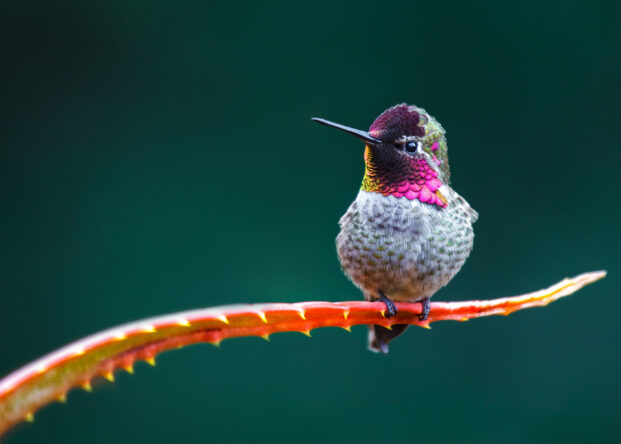
Birds are like tiny meteorologists. They can detect drops in barometric pressure before a storm hits and often fly away or change their song patterns as a warning. It’s not something they learn; it’s built into their biology as a survival mechanism.
If you’ve ever noticed birds going strangely quiet or disappearing before bad weather, they’re not being antisocial, they’re just ahead of the curve. Scientists have even used GPS data from migratory birds to predict tornadoes and hurricanes more accurately. Turns out, nature’s early warning systems might be more reliable than we thought.
3. Cats can sense earthquakes.

It’s not unusual for cats to act jumpy, hide, or bolt from a room minutes before an earthquake hits. While it might seem like coincidence, it’s believed that cats can pick up on seismic vibrations or changes in electromagnetic fields that humans can’t perceive.
They’re not predicting the future; they’re just extremely sensitive to environmental shifts. In some areas prone to quakes, cat behaviour is even monitored as part of early warning systems. So if your cat suddenly darts under the bed for no reason, maybe don’t ignore it.
4. Sharks can detect the tiniest electrical fields.

Sharks have special organs called ampullae of Lorenzini that let them pick up on the faintest electrical signals, like a heartbeat or muscle movement in prey buried under sand. However, they can also detect disturbances from underwater equipment, boats, and even geological activity.
This sensitivity makes them highly tuned to changes in their environment, which means they can often sense natural disasters like underwater earthquakes before they happen. It’s another reminder that their hunting tools also double as an advanced detection system for danger.
5. Elephants react to low-frequency rumbles.
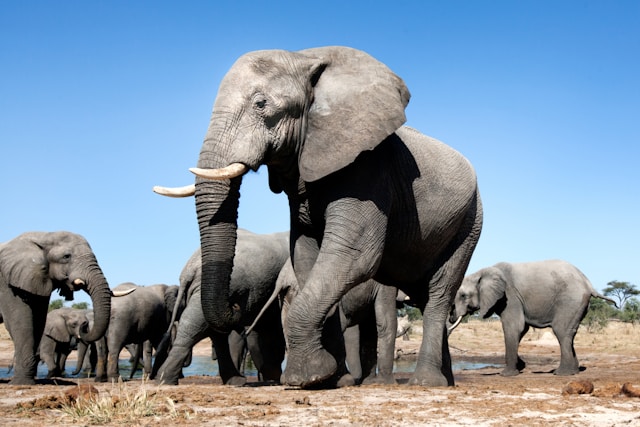
Elephants are known to detect rumbles from miles away, sometimes caused by distant storms, other herds, or even earthquakes. They communicate with each other through deep, low-frequency sounds called infrasound, which travel long distances through the ground and air.
This same ability allows them to pick up on seismic changes or distant environmental disruptions that are totally silent to us. Their herd movements have even been linked to escaping areas hours before a natural disaster hits. They’re not just walking slowly—they’re listening deeply.
6. Bees disappear before a natural disaster.
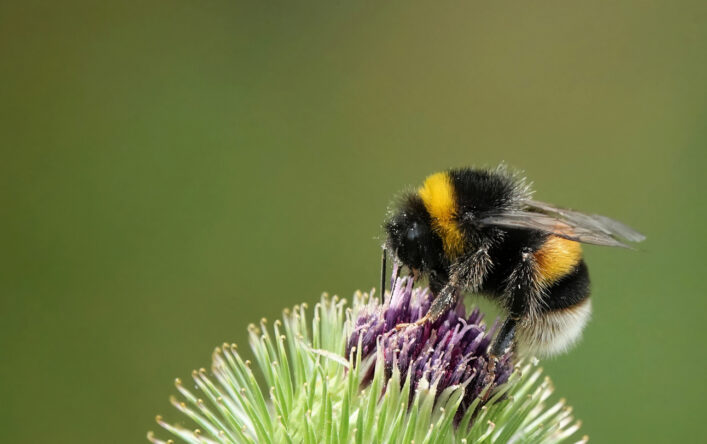
Bees are hyper-attuned to their surroundings. Before earthquakes or severe weather, entire colonies have been observed abandoning their hives or becoming unusually still. It’s believed they pick up on shifts in barometric pressure, electromagnetic fields, or even subtle vibrations in the ground.
Since bees are so routine-oriented, any sudden change in behaviour can be a red flag. Their silence or disappearance is often one of the earliest signs that something big is about to happen. So if your garden’s buzzing population goes missing, keep an eye on the forecast.
7. Horses become restless before danger.

Horses have powerful survival instincts, and they often become jittery or agitated when danger is near. They pick up on environmental changes and can sense predators, severe weather, or earthquakes before any human notices a thing.
Their heightened awareness comes from being prey animals; evolution taught them to react quickly to stay alive. If your usually calm horse starts pacing, snorting, or trying to bolt for no clear reason, it might be worth looking around. Something could be brewing.
8. Frogs and toads stop croaking before a quake.
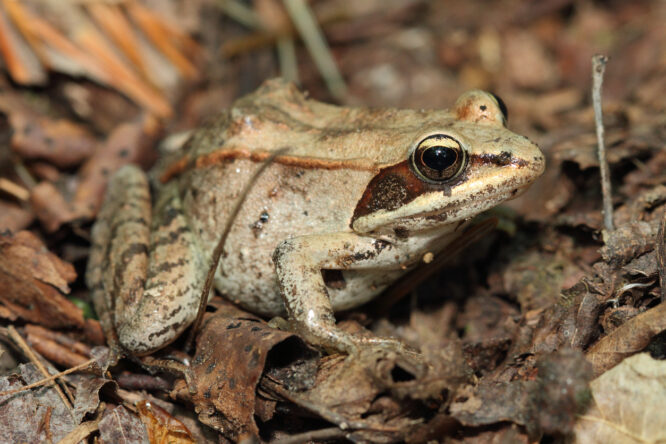
In some parts of the world, frogs and toads have stopped croaking days before an earthquake. Their sudden silence is eerie and noticeable, especially in areas where they’re usually very vocal at night. Researchers believe it may be a response to chemical changes in water or shifts in electromagnetic fields.
When multiple amphibians go quiet at once, it’s a sign that something has disrupted their ecosystem. Since they’re sensitive to so many environmental factors, their behaviour can act as an early red flag for everything from pollution to seismic activity.
9. Fish sense tremors underwater.
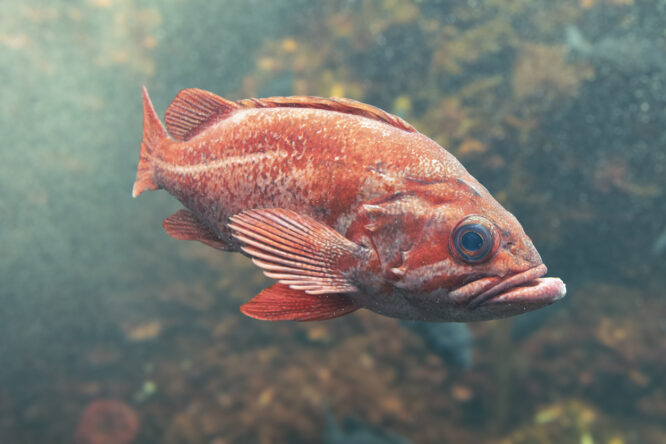
Fish are extremely sensitive to changes in pressure and vibration in their aquatic environment. Before undersea earthquakes or tsunamis, fish often swim erratically, change depth quickly, or even beach themselves to escape unstable conditions.
This behaviour isn’t just random; it’s driven by a reaction to disturbances we can’t sense. Some fish may also detect electrical signals caused by tectonic shifts. So if marine animals start acting strange, it’s often a sign something bigger is happening beneath the surface.
10. Dogs detect emotional danger too.

It’s not just physical threats—dogs are also known to sense emotional shifts in humans. If someone’s upset, angry, or on edge, dogs will often pick up on it through body language, scent changes, and subtle vocal cues, even when no one else notices.
That’s why your dog may suddenly become clingy or protective in tense situations. They’re not just reacting to your tone; they’re reading the entire vibe of a room. It’s a kind of emotional radar that often makes them the most intuitive presence in the room.
11. Mice flee before volcanic eruptions.
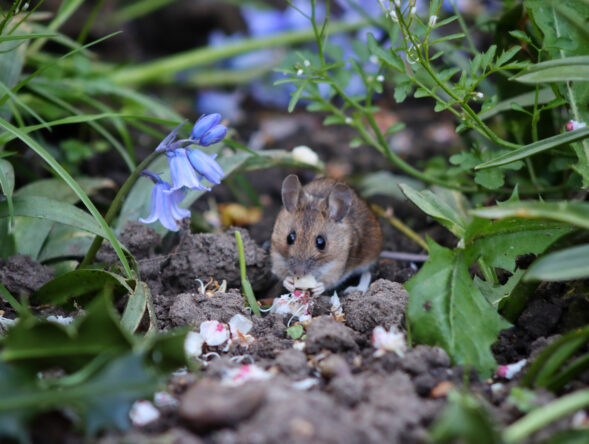
In areas near active volcanoes, locals have long reported rodents fleeing the area days before an eruption. Scientists believe mice can detect changes in ground temperature, chemical composition, and tremors well before a human would notice anything’s wrong.
While we might wait for an alert from geological services, mice just pack up and leave. Their early escape might look like instinct, but it’s based on real physical changes in their environment—yet another reason to trust your surroundings (and your pets) sometimes more than your phone.




